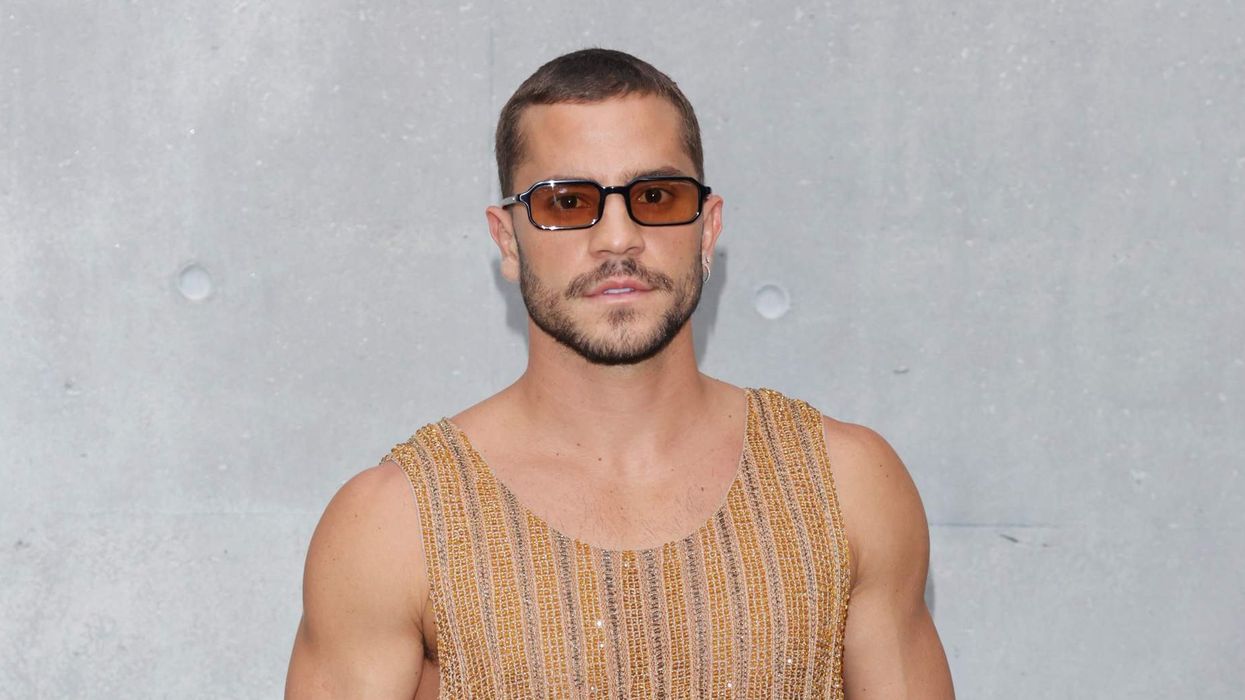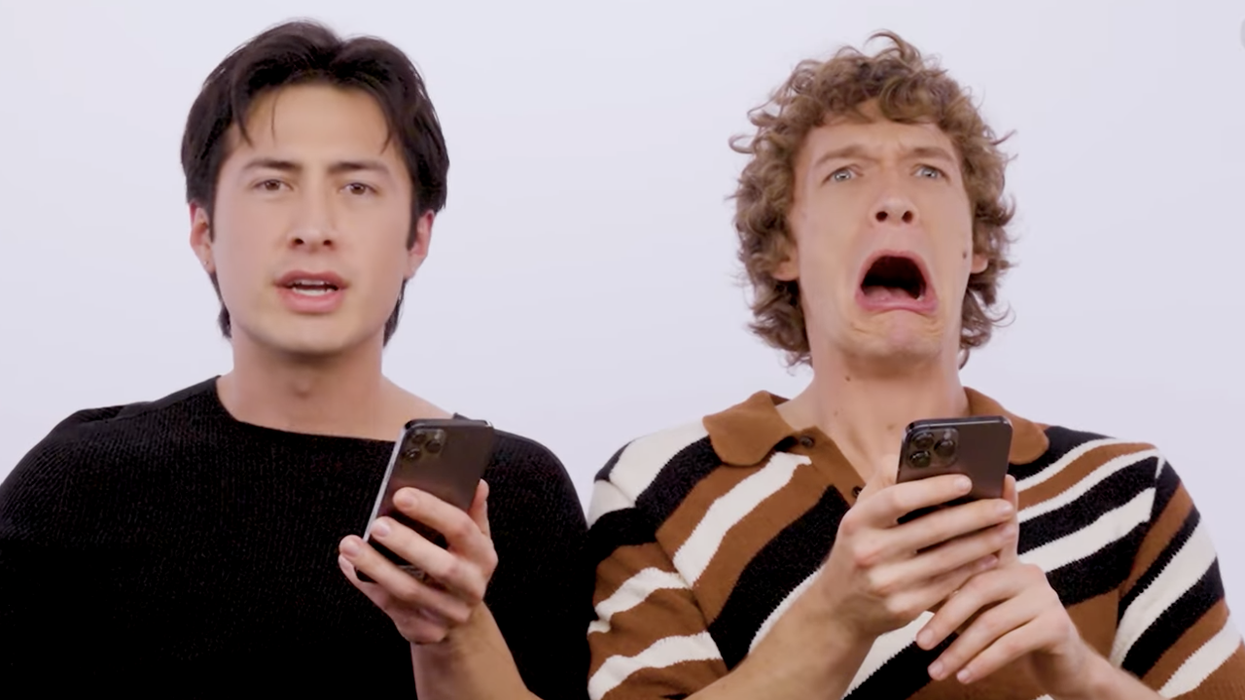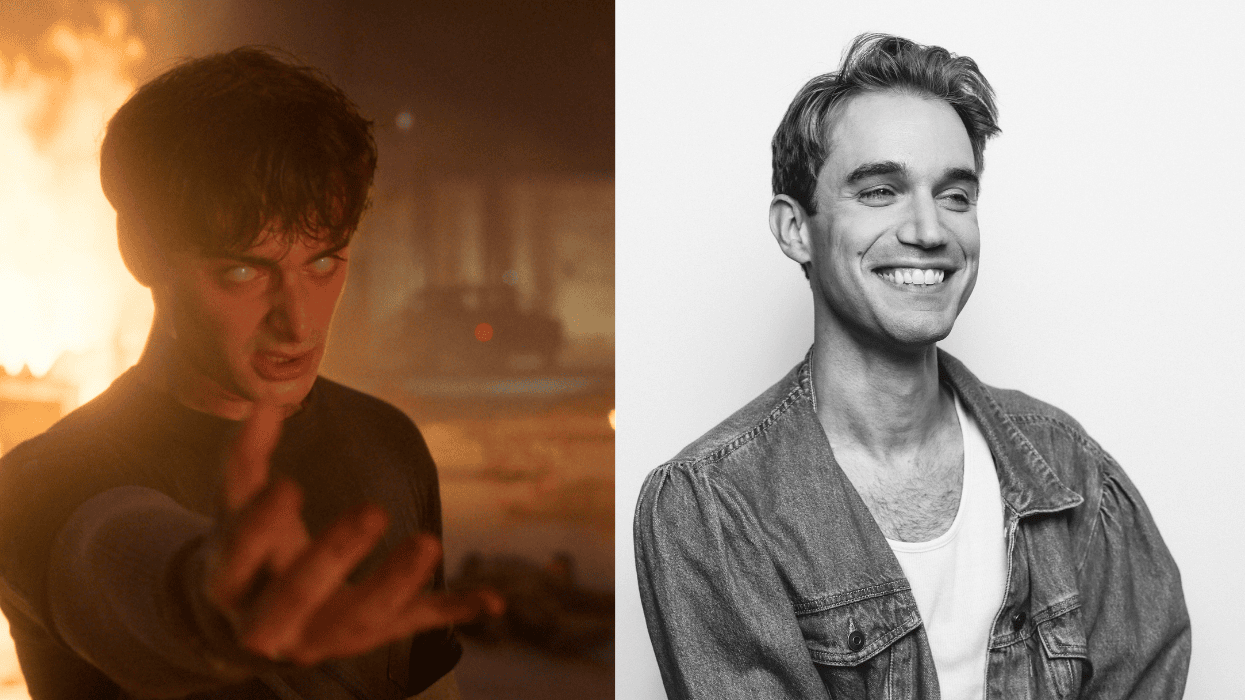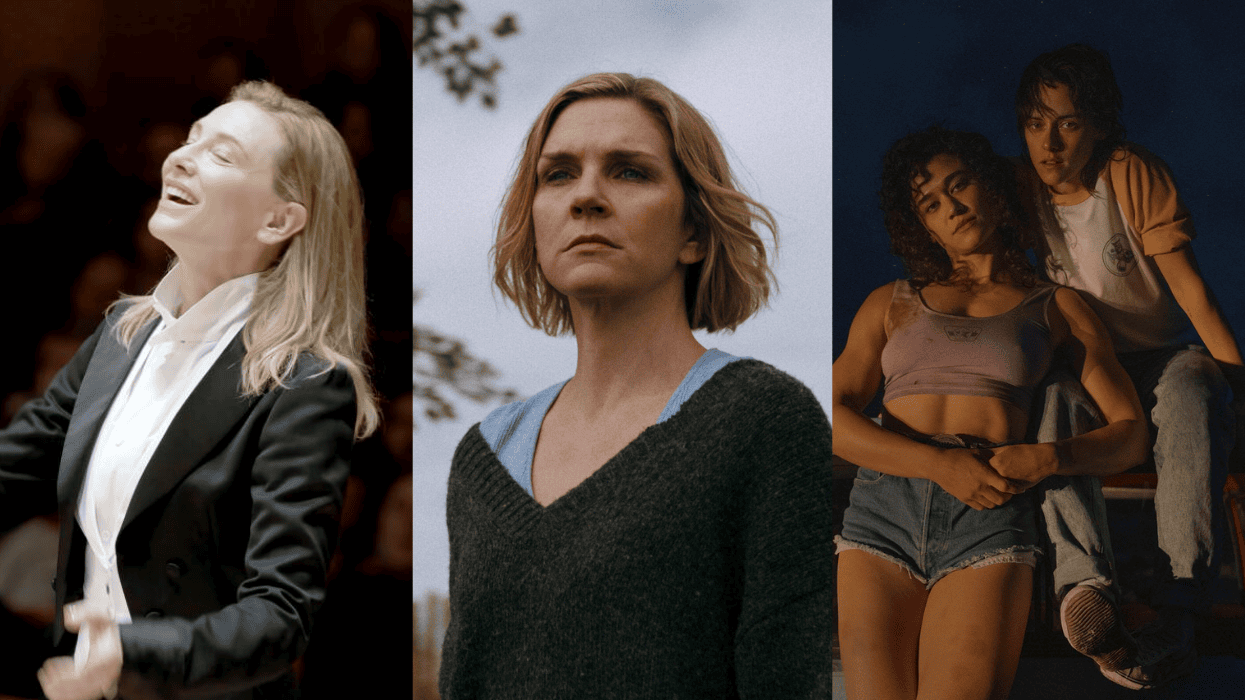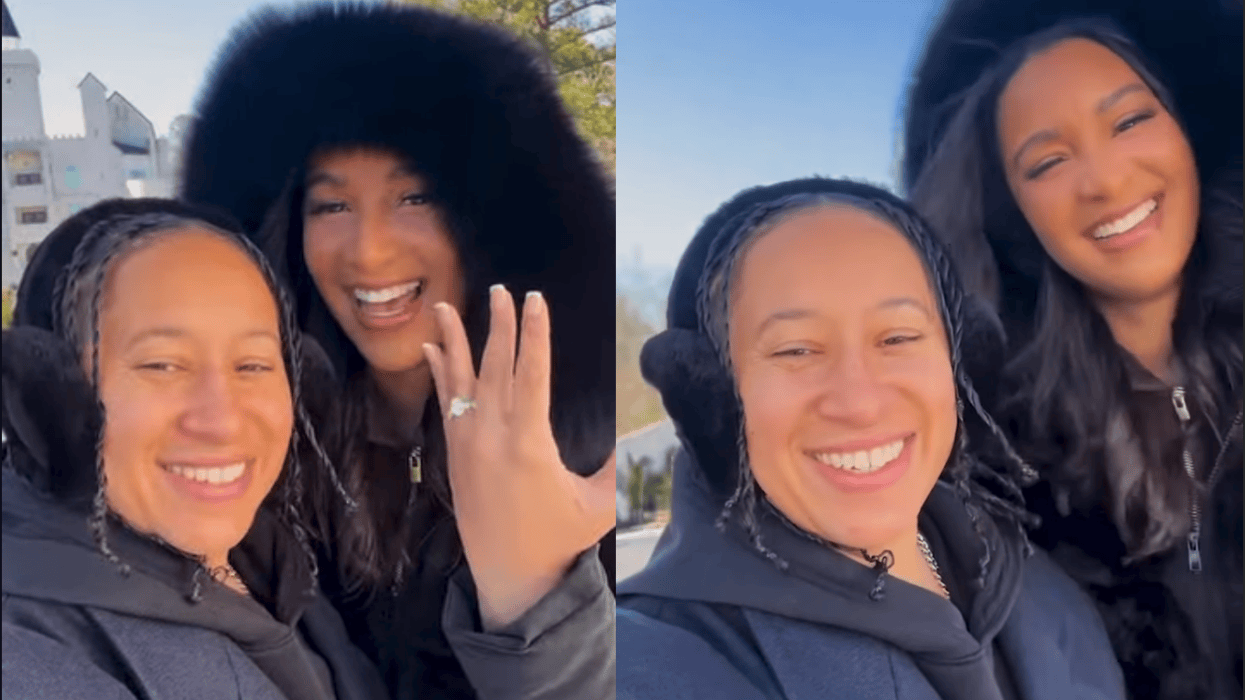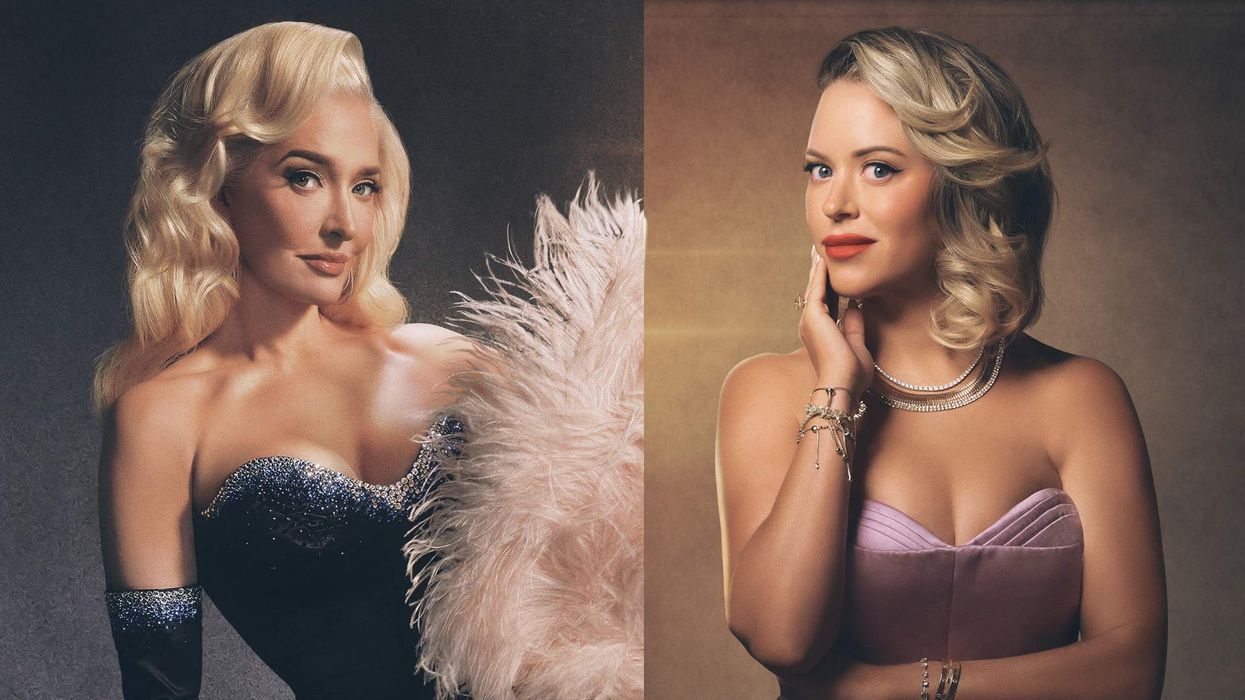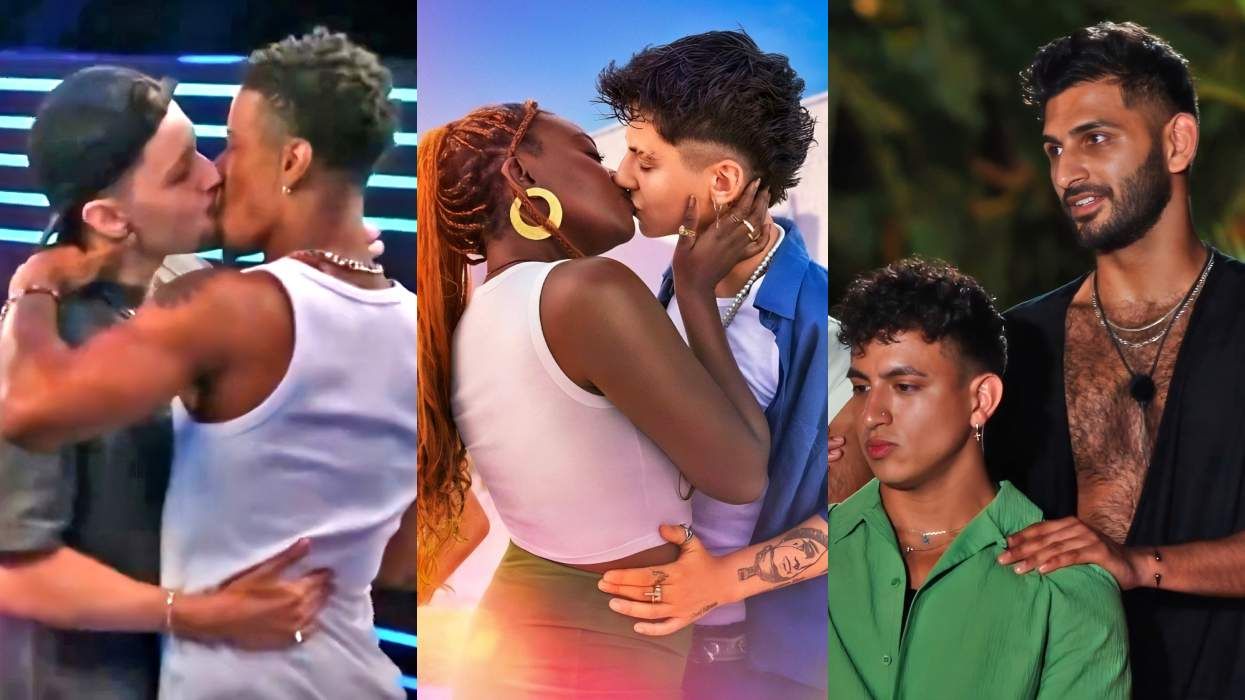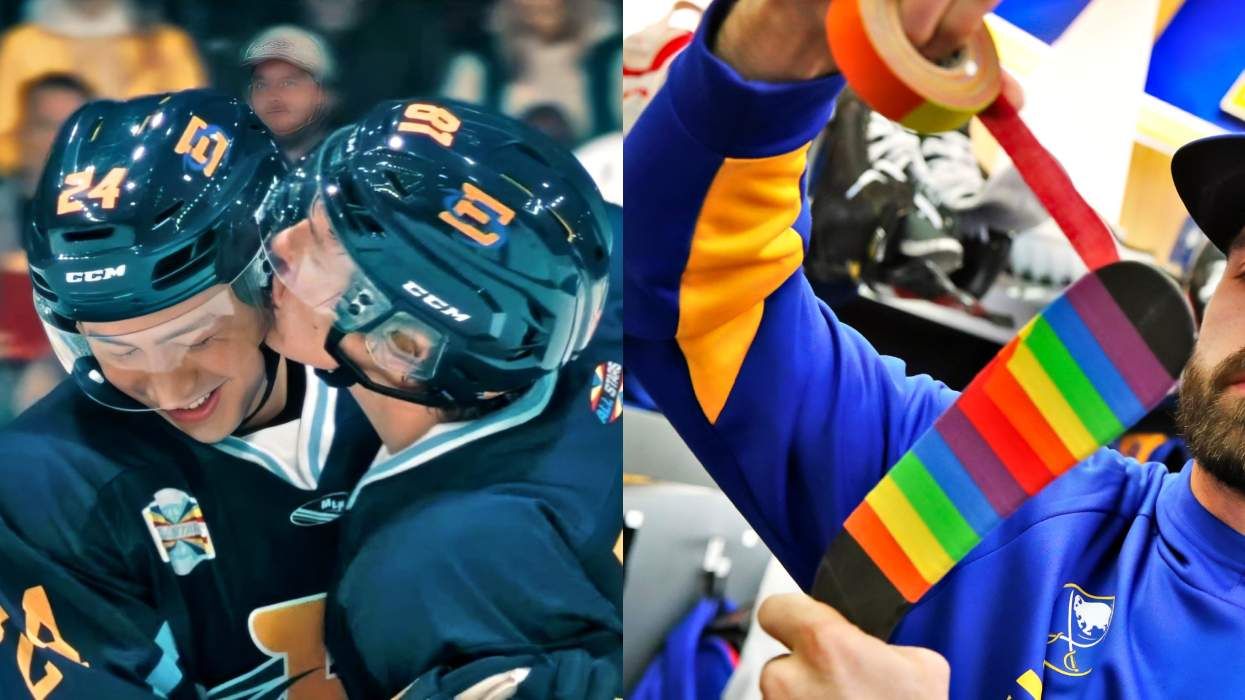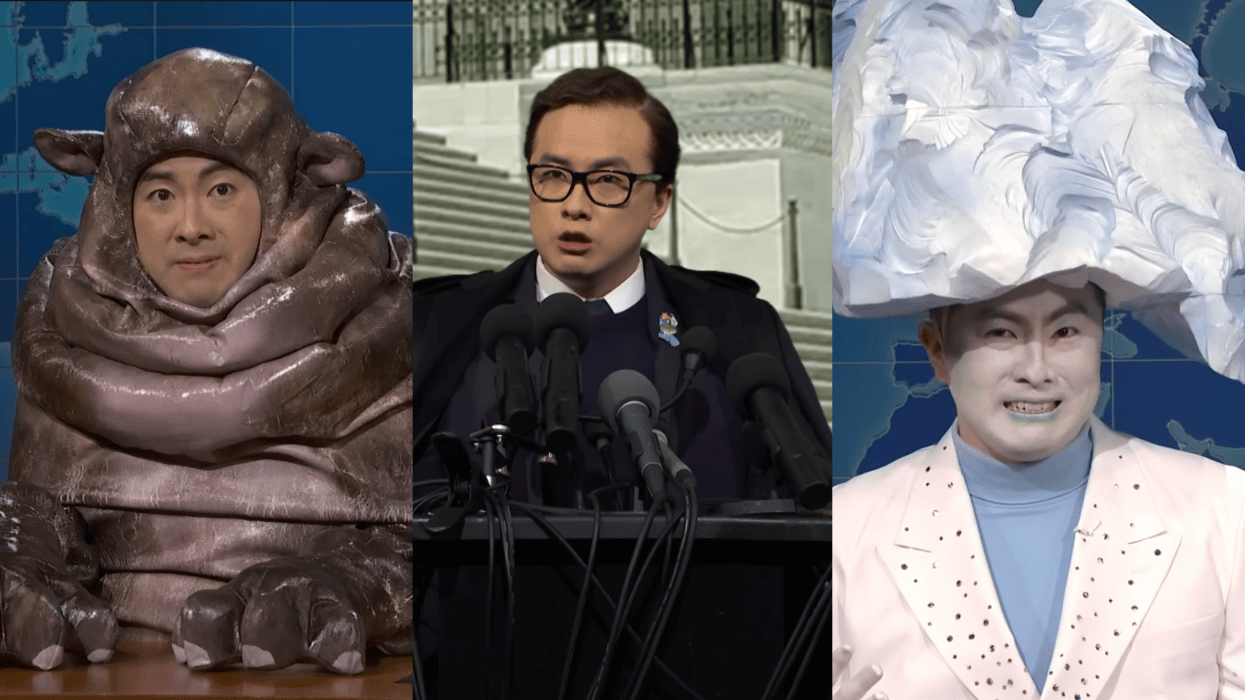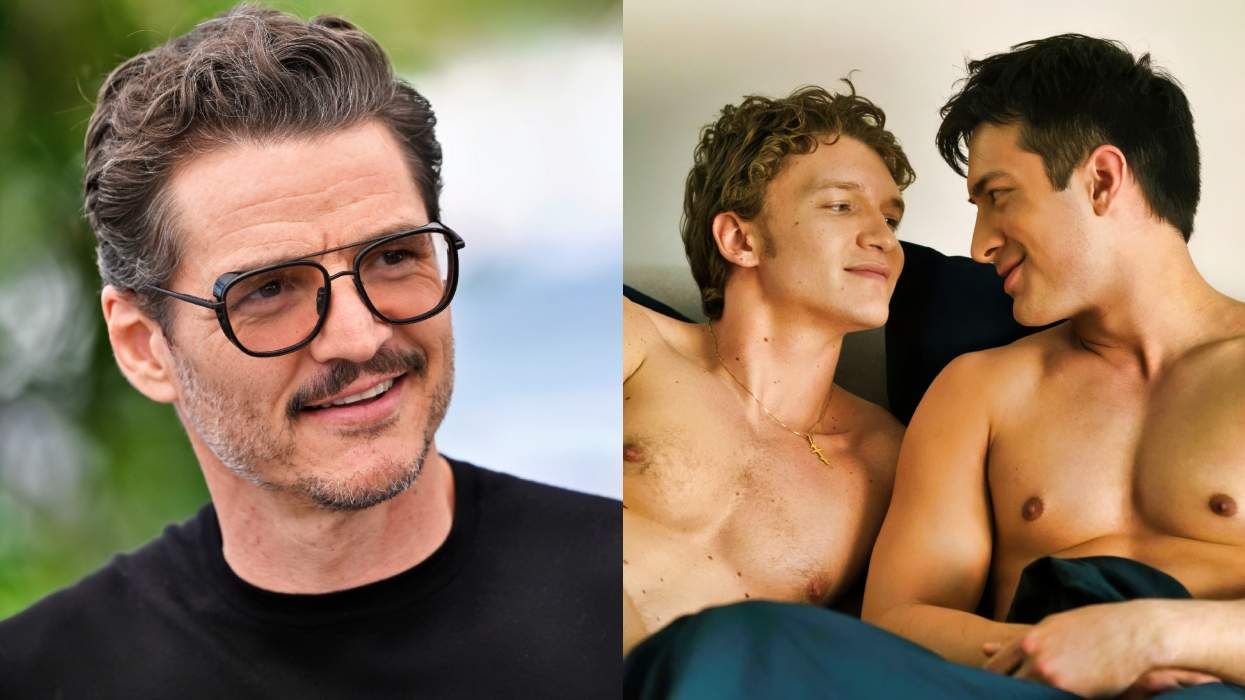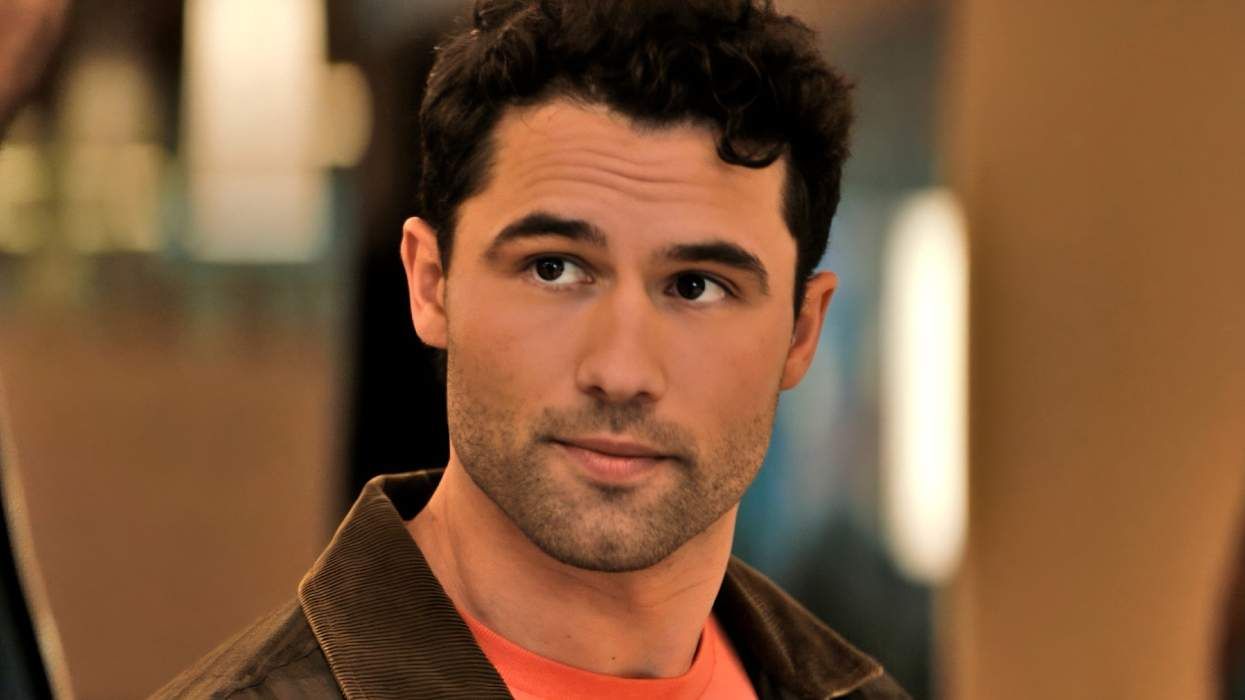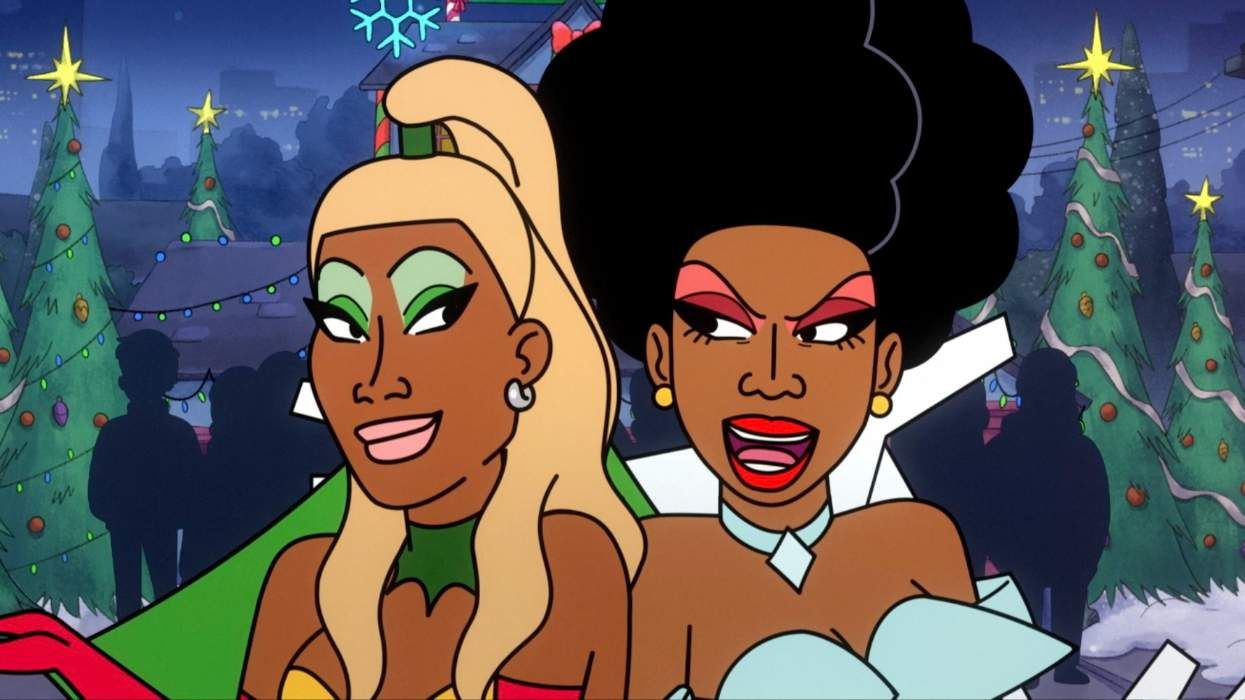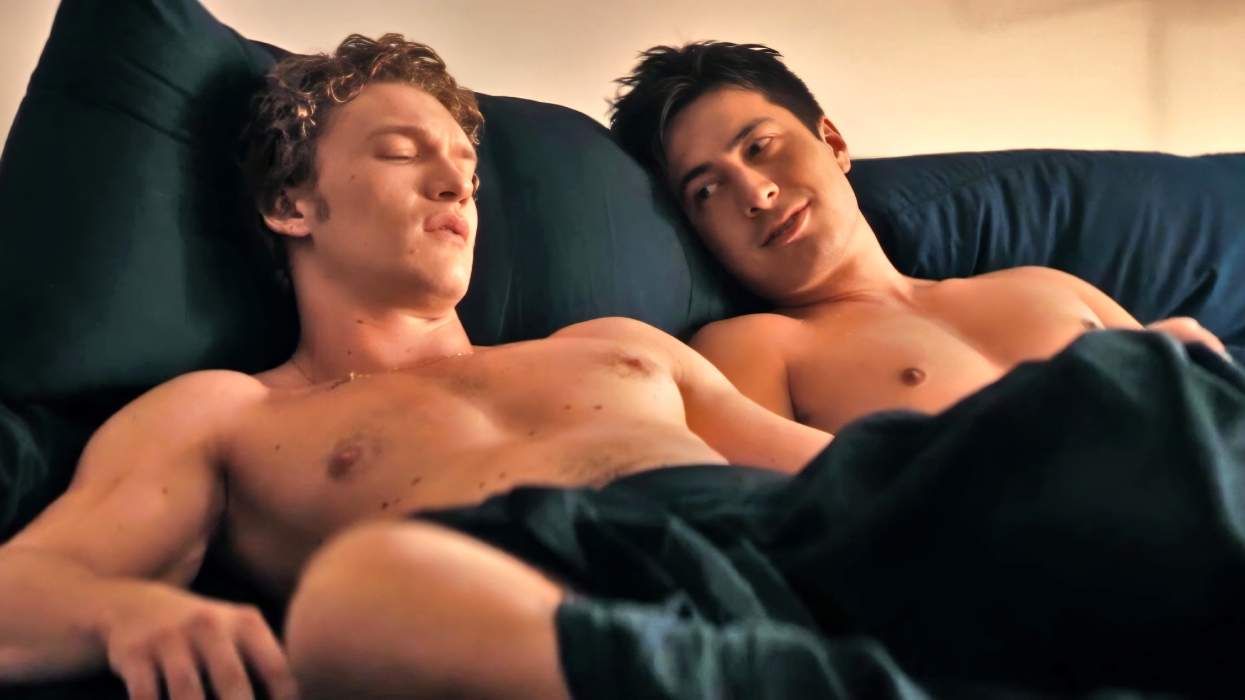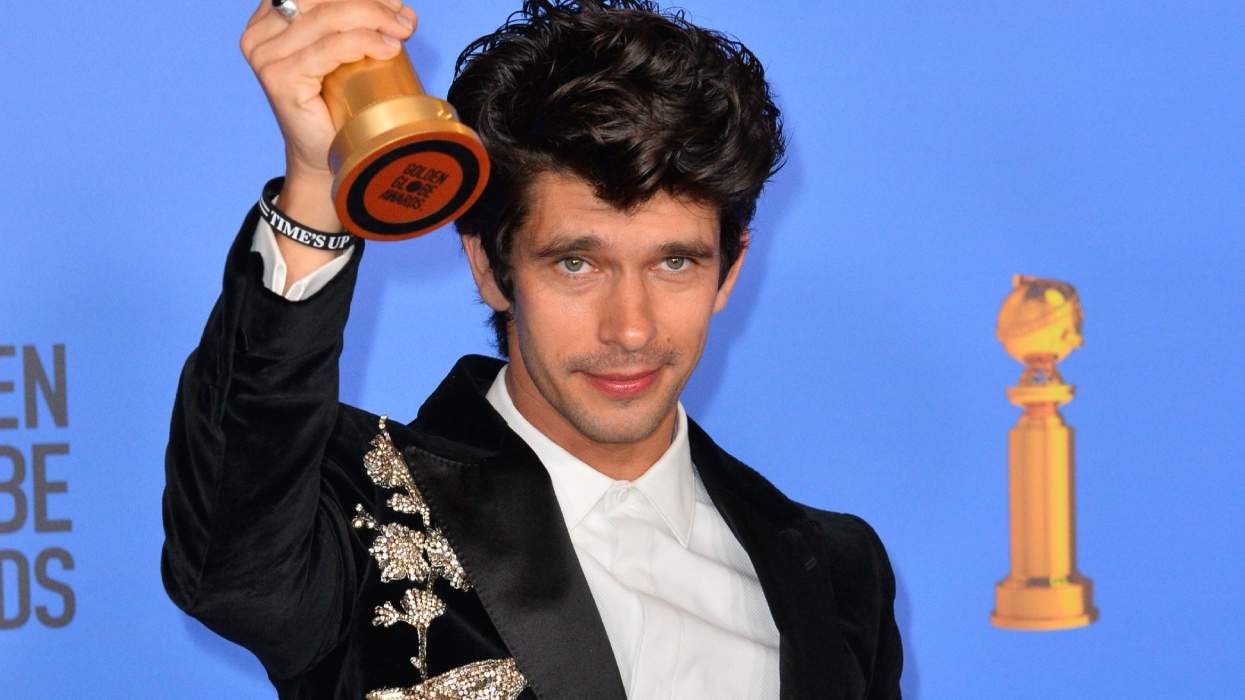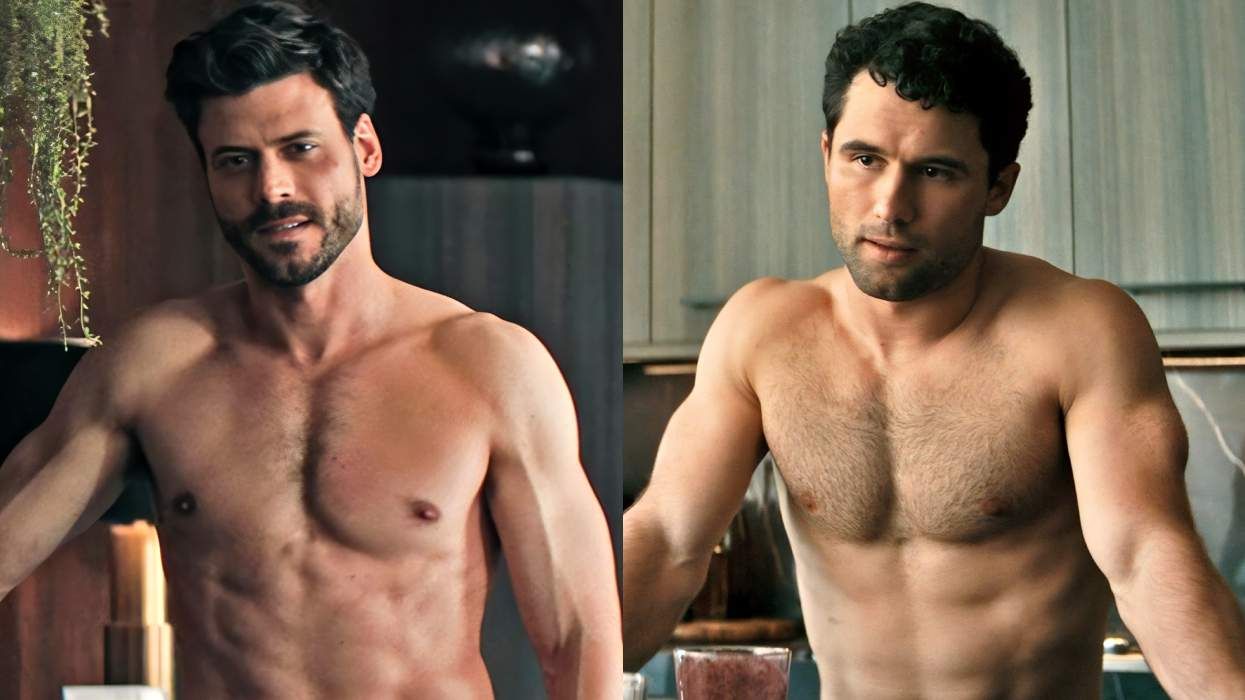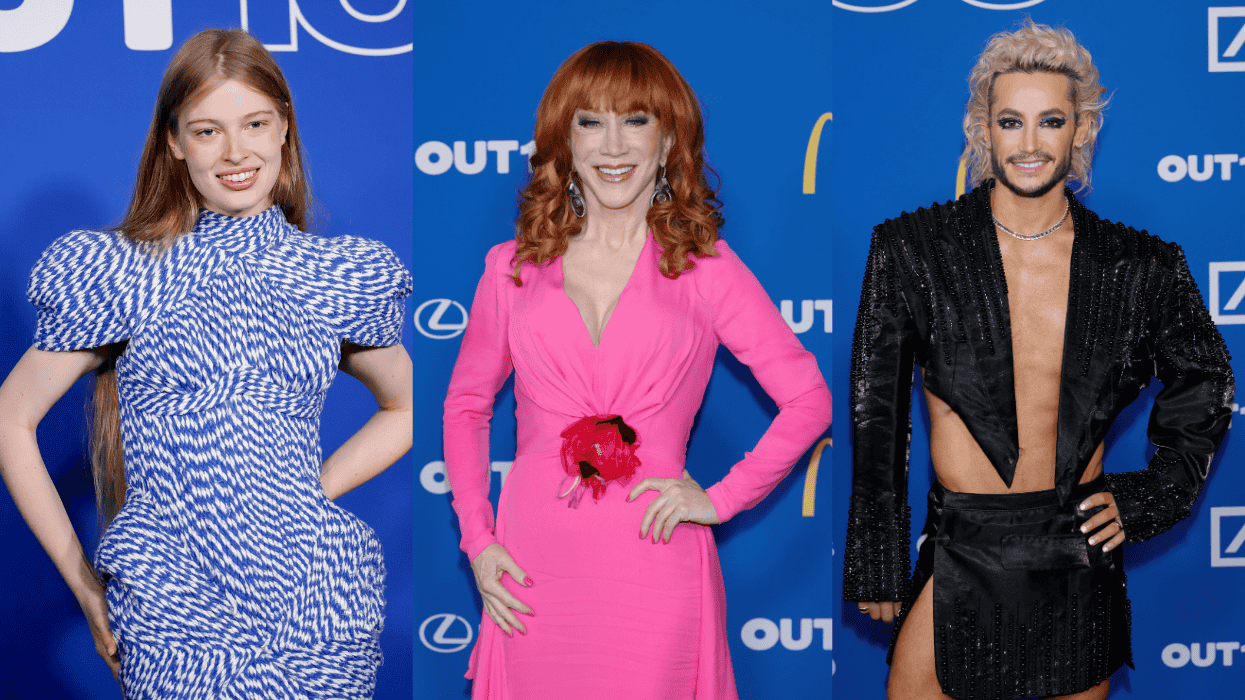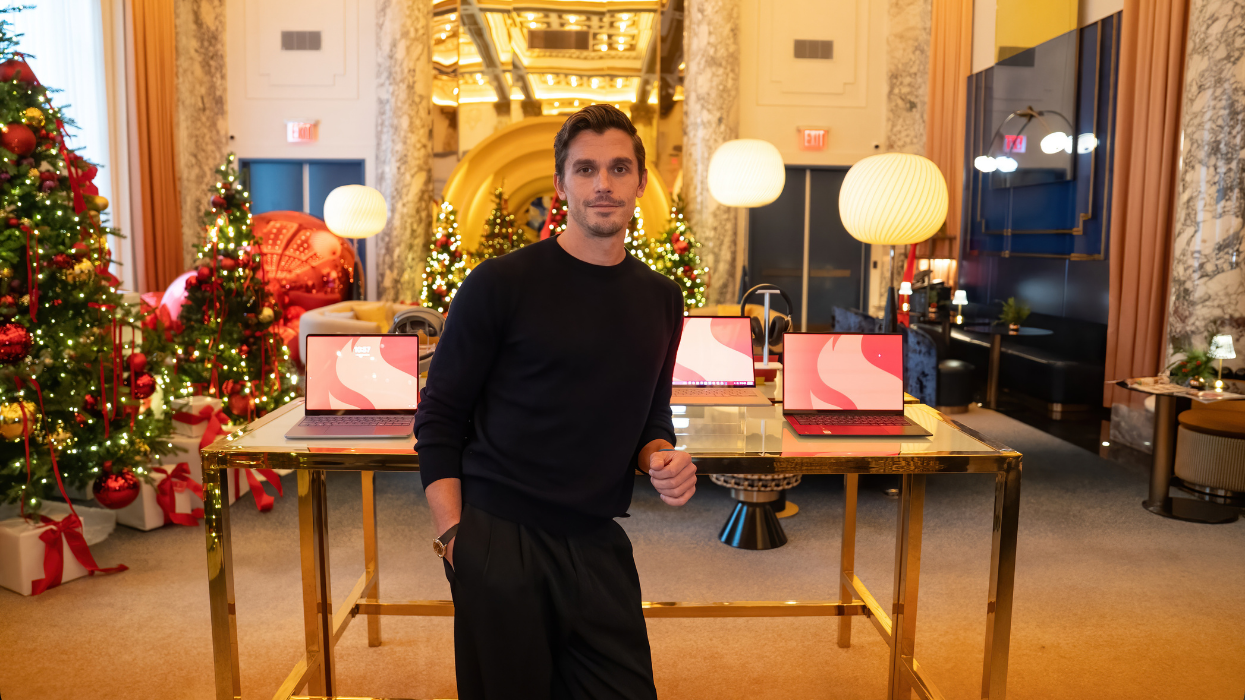Can you imagine Glee's iconic "Don't Stop Believin'" performance with Twyla Tharp touches and knee-slides? How about McKinley's school colors as anything but red, black, and white? A Glee without any gay characters? These were all real possibilities when the pilot episode was under development in 2008. Glee began as a movie script by co-creator Ian Brennan, and it was transformed into a TV series in the hands of producing duo Ryan Murphy and Brad Falchuk. Their vision to celebrate the high school underdog by way of catchy pop covers and soap opera elements rang true for a generation looking for stardom (as Rachel Berry's voiceover reminds us in the pilot, "Fame is the most important thing in our culture now.") In a sea of reality shows, fictional Glee felt strangely real -- despite the ubiquitous song-and-dance -- during its tenure. Along the way it racked up serious accolades, and serious detractors. But where most agree about Glee is the pilot episode. It's Glee's purist form, and it's what captured so many hearts in the pop culture landscape.
When it aired after the American Idol finale in 2009 it became a must-discuss water cooler topic, leaving a whole summer for fandom to flourish with fervent rewatches. The dark, snarky, never-before-seen integration of teenage outsiders and pop music fantasy sparked a phenomenon that dominated pop culture. As the show winds down in its final few episodes, we look back with the cast and crew of its original pilot, who shared an oral history of the making of a definitive TV moment, from neck injuries to green card delays to hoping for just enough screaming fans to outnumber the cast -- and getting so much more.
Robert Ulrich (Casting Director): We had worked with Ryan Murphy for many years. My business partner Eric Dawson had been his primary casting partner. Eric had done Popular, a pilot called Pretty/Handsome, and Nip/Tuck. I had done episodes for Ryan when Eric was out of town, so I knew him just barely. When Ryan called Eric about Glee, Eric asked me if I'd be interested in doing it with him because he knew I'd been a singer and was in music.
Zach Woodlee (Choreographer): I was working for Greg Berlanti on an ABC show, Eli Stone. He called me in and said his friend Ryan had a pilot that needed a choreographer. I read the pilot and it just made sense to me. I met with him and Brad Falchuk. We just talked it over, what I thought, and then it was a pretty easy process. We met for a half hour, and then got a call that next week that said, "We're doing it." I think they were still doing casting at the time.
Ulrich: It had just been picked up to pilot [when I joined]. We sat with Ryan when he pitched it at Fox, and it sounded fascinating. Then we read the script, and it was just so genius. I remember thinking, How will this ever get done for a pilot, let alone week to week? How will you ever do these big numbers and produce all this music? The fact that that has been maintained so successfully over all these years, is really a testament to everyone who's worked on Glee.
Lou Eyrich (Costume Designer): We were working on Nip/Tuck and [Murphy] told me he had this new pilot based on a high school glee club. I had been in glee club in high school, so I could totally relate to the script. But at the same time I was like, "This is just a script about high school kids, this will be easy." When we started working with Ryan, it became apparent that we wanted it to be more heightened reality, not just high school. We wanted it to have a sense of fashion. We wanted to make each character very distinct from one another.
Ulrich: For me, as a casting director, it was incredible because they weren't concerned with names. It's so much more fun to discover talent than just do a list a names. Glee was all about discovery. In a few minutes, we went through the few people that would mean anything who could sing and dance and were in the age range. He wanted people who looked like high school, and people who could sing and dance. I had worked on a NBC musical called Rhapsody that didn't go -- it was very dark and very different from Glee. I had come up with a format that worked for me, for how I ran the audition process, so I used that same format with Glee. I met Brad Ellis, the pianist, as the accompanist on the other pilot. I brought him over to accompany the auditions and he even ended up on the show.
Eyrich: High School Musical had just come out when we'd started out, and we'd already decided on the red and white (for McKinley colors). When they were such a big hit we were reluctant to use it, but we decided to stick with it and add black to it. Ryan really wanted red and white.
Lea Michele (Rachel Berry): I first heard about Glee from my best friend Jonathan Groff. We were in Spring Awakening at the time, and he had just done a pilot with Ryan Murphy and Ryan had seen us in [Spring Awakening]. Jonathan said [Murphy] was writing this show with me in mind for the role of Rachel.
Ulrich: Lea was very bold. She was doing Les Mis at the Hollywood Bowl, so she sang "On My Own" from that and was genius in the room. When she went to the network she was in a minor car accident before, that's a famous story. What I remember about Lea is during the original pilot script Rachel slaps Finn. I was reading it with her, and I didn't know her, I'd never met her. She didn't introduce herself, but she flat out slapped me. She slapped me twice at the network. She never said anything before, never said anything after. She flat out owned that character to that ultimate from the moment she walked in the room.
Michele: I remember reading the pilot script for the first time and thinking it was brilliant. I remember reading the scene where we sang "Don't Stop Believin'" and I got the chills.
Ulrich: In the original pilot, there wasn't the Sue character. I'm pretty sure (former Fox President) Kevin Reilly said it needed a villain. We auditioned that role, actually, and then they offered it to Jane [Lynch]. It was one of those roles that is so iconic that it's hard to imagine anyone else playing it. I think we didn't know if she was going to get out of the other show (Lynch was attached to another pilot at the time), or we knew that we had her, until a certain point.
Iqbal Theba (Principal Figgins): I had done an episode of Nip/Tuck before Glee, the same year. I heard from somewhere they were having trouble finding the role of Figgins, and Brad Falchuk brought my name up. When you're reading for something you never know, it's just the next job. At that time I did not have a regular gig, I was just going from job to job like the majority of working actors. When I read the script I knew it was a great show. It had a quality that would attract a lot of attention and really connect with a huge number of people.
Stephen Tobolowsky (Sandy Ryerson): I was recovering from a broken neck. I had been in the brace for three and a half months, and a messenger came to my house for this script for something called Glee. When you have suffered a terrible injury, not only are you terrified by the injury, as you begin to heal you are terrified you'll never work again. So when I got this script for something called Glee, I was overjoyed. I called my agent immediately, and said, "Whatever this is, I'm going in on it. I don't care if I'm up for it or not, I'm going in."
Theba: If you look at Jane, Jayma, me, we all had familiar faces. We had done a lot of stuff, but we were not big names or anything. But the young cast had, most of them, I don't think they had anything. Some people did not have a single credit. They basically got the job and it took off like crazy. They're all so talented.
Ulrich: Chris's story, everyone's heard. He was 18, his father drove him up. I'd never met him. There wasn't a role for him, which everybody knows. He said one word and sang one sentence, and I said, "Oh my gosh." I took him to Ryan. To think there was no gay character on Glee is bizarre.
Chris Colfer (Kurt Hummel): I remember getting an audition for a new Ryan Murphy show, and I was super excited because I was obsessed with Nip/Tuck. I wasn't actually allowed to watch it, so it was the closest thing to an adolescent rebellious phase that I had -- then I read the script for Glee, and immediately fell in love with it. I was a performing arts kid and grew up in a community theatre, I was ecstatic someone was making a show about kids like me. I wasn't surprised when it blew up like it did: I always knew it had an audience. The big surprise was that I was a part of it.
Ryan Murphy (Co-Creator): Glee was going to be about a lot of things: song, dance, Jane Lynch's character being waterboarded. But for me, I wanted to do something personal in that show. I grew up in Indiana, behind a cornfield and a church, and for me growing up, the only single person I knew who was gay was the Center Square, Paul Lynde. So with Glee, I wanted to write about something personal, something about gay characters, something about creating your own kind of family -- no matter who you are and where you live.
Jenna Ushkowitz (Tina Cohen-Chang): [My first Glee audition] was just an agency call. Lea had left Spring Awakening already at that point, she was already in L.A. I was in New York. It sort of trickled through the theater that everybody was going on it, because the characters were so open and unspecific, in a way. I was in the waiting room with three of the other cast members of Spring Awakening at the time. It was a weird audition because Tina only had two lines in the pilot.
Kevin McHale (Artie Abrams): Artie had kind of a vague character description. It said he was in a wheelchair, and he's kind and has a big heart. That was basically it. I had auditioned for Superbad a couple months prior, and I had gotten really close on it. At the time, I had these new eyeglasses and didn't wear them. On my third or fourth callback I thought, Should I wear my glasses? But I didn't wear them. It always was a reminder, I need to wear my fucking glasses. So the day I went into audition for Glee, I hadn't put my contacts in because I was lazy. So I was like, "Fuck that, I'm going to wear the glasses, and I'm going to use it." You audition for a lot of things that are crap. You really do. You don't get so emotionally attached. The moment I read Glee I got emotionally attached, which sucks, because when you don't get it, more often than not, it's a huge letdown. Artie became nerdy because I was so nervous. Ian Brennan told me later on that I was the first Artie they saw, and that was it. "We knew immediately we wanted you." I said, "it would have been nice if you told me that because I had to wait 7 weeks before you found everyone else and I could test."
Ushkowitz: When I found out I was going to network they said, "OK, you'll do your show [in New York]. You'll get on a red eye. You get there in the morning; you shower; and you go straight to Fox and meet the network." I had never tested before, I had no idea what that meant, all I knew was I was close. That night, I was ready to get on the flight, and I must have gotten bit by something or was really nervous, and I got hives all over my face. I was already panicking that I was going to look like a monster. I showered and they went away. I went to the network and what they don't tell you is you can't leave until everyone has auditioned. You don't just go in and go home. You go in, and you wait.
McHale: I had never tested for a TV show before. I auditioned on a Monday, I had a callback on Tuesday, and then found out I was testing on Wednesday. It was very early on in the process, so I had to wait. I knew they were having a problem finding Quinn and Finn, and maybe they found a Mercedes, but they weren't sure. Then I met Chris, and I was confused what he was auditioning for.
Colfer: I remember meeting Jenna and Kevin in the early auditions and we bonded over The Dark Knight casting rumors. Someone said Cher was going to be Catwoman, so naturally we all had opinions about it. I remember I could hear everyone singing in the next room for the studio and network executives and I was blown away. Everyone was so talented. I didn't know how I could possibly fit in and I probably wore my vulnerability on my sleeve - which may have been a reason I was cast now that I think about it.
McHale: I remember Chris and I came up in the elevator together from the parking garage in Fox. I was terrified, but I could see that he was even more terrified. He seemed so lost in a way, which is funny to say now because he seems more mature than I am. So I decided to help him. I checked us both in at the security desk, and we rode up to the right floor together. When we sat down I saw that he had Artie sides, and I was like, "Shit, I'm helping the enemy." But then Robert came out and mentioned something about Kurt, so I gathered he wasn't auditioning for Artie but I didn't know who Kurt was. Chris told me how he auditioned and how they kind of made a new role. He was being very modest. I don't know if he was aware or not that he was the only one auditioning for that part. Like, You're definitely getting it.
Ushkowitz: Chris was testing against himself, so obviously he got it. Me and another girl, and Kevin and another guy were all testing. We just sat there quietly and Ryan came in before the test and went, "Hi guys, how are you, is everybody nervous?" That made us more nervous. It was a weird thing, but we all booked it within the hour of auditioning. Before I got on my flight home I knew.
McHale: I was so nervous I had my friends drive me that day. We went out to eat after, which is the worst idea because I was such a mess that I couldn't even think straight, never mind try to eat food. I felt like I was going to vomit all over the table. My manager called to say they'd found out Chris got it, and they were still waiting on me. Then she called back a few minutes later and I heard her voice crack and she goes, "it's yours, it's yours." I gave a thumbs up and my friends all start screaming in this nice restaurant in Beverly Hills. My family was crying when I called them, they were waiting by the phone too. I had been trying to do it for a long time, and I didn't know if music was going to work out or acting was going to work out, but this seemed really special.
Ulrich: Quinn was a role we had a long, difficult time finding. We'd gone to network and studio, and they hadn't chosen anybody. It was the night before shooting, Dianna Agron came here to the office. I believe we sent her home to change her hair and clothes, and we put her on tape. She never went in front of Ryan, studio, or network. That became the way the show ended up being cast, Ryan did almost all of it via tape. With the exception of Chord, Melissa Benoist, and Dean Geyer. Darren Criss, everybody, just went by tape. That's what happened with Dianna, and it was very exciting.
Naya Rivera (Santana Lopez): I didn't know anything about it when I started off. It was just another audition, and I knew that I had to sing. So I had to drive to go buy sheet music and pick out a song to sing, but other than that I didn't know anything. Santana didn't have any lines in the pilot, so I had to read Mercedes lines. The whole bit about not being able to get stank ass out of polyester. I auditioned twice and booked the gig.
Ulrich: We were having a terrible time with Finn. Either the people who be almost right, or not sing well enough. We were getting nervous. We'd flown people out from New York, and no one is was working. We were here late one night and my associate Alex was out at her desk and she said, "Robert, come look at this guy." Cory came up on the screen, and she goes, "He kind of reminds me of Ben Affleck."
He was so engaging and charismatic, and we waited and waited, and he didn't sing. So we had him sing. I knew that Cory, who didn't consider himself a singer at all, could sing well enough and could get better. I love the tone of his voice, that's my personal favorite in male voices. I think by the end he became a really good singer, and he was always an incredible actor. He was a quick learner. They took a big gamble on him in the room, because he didn't have his working papers. They weren't going to come until halfway through the pilot, and Kevin Reilly took a chance. Cory was so dynamic, and accessible.



